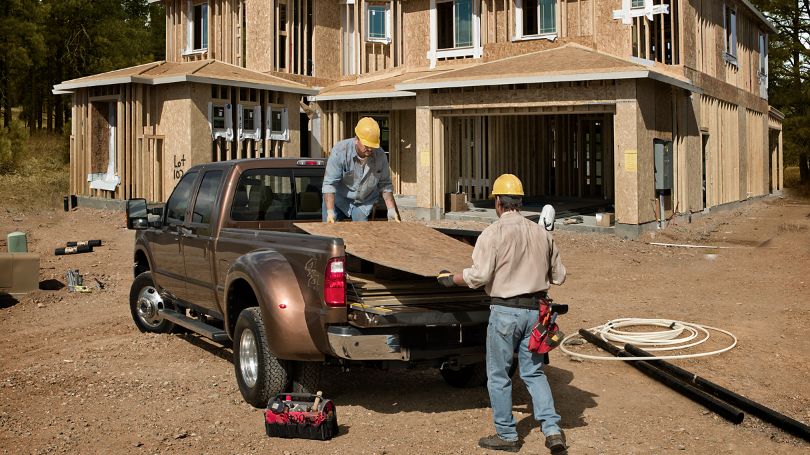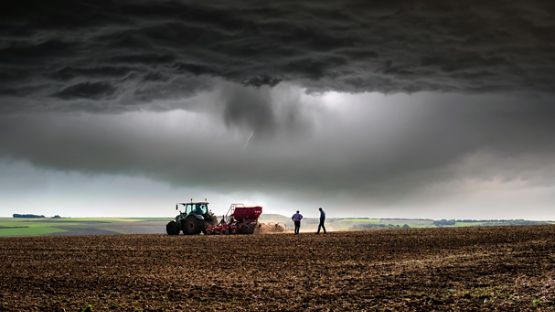Commercial Auto Insurance is a type of car insurance that’s mandatory for vehicles used for business purposes. It works the same as a Personal Car Insurance policy, but it covers work vehicles – such as delivery trucks and company cars. In this guide on Commercial Auto Insurance basics, we’ll walk through everything you need to know about this type of policy, including how it works, who needs it, and what it covers.
What is Commercial Auto Insurance?
Commercial Auto Insurance, also known as ‘Business Auto Insurance’ or ‘Commercial Vehicle Insurance,’ is a type of auto insurance that covers damages to vehicles used for business purposes, such as delivery vans, company vehicles and even food trucks. It’s a contract between a business owner who operates work vehicles and an insurance company that outlines how the latter compensates the business owner for any financial losses arising from the use or ownership of the vehicle covered under the contract.
It’s important to note that Personal Car Insurance is separate from Commercial Auto Insurance. Your Personal Auto Insurance, in most cases, won’t pay a claim for damages on a car used for business.
How does Commercial Auto Insurance work?
Commercial Auto Insurance pays for injuries* or damages that may occur if an operator or employee is involved in an accident while driving a business vehicle. Depending on the policy, this could include expenses related to repairs or replacements, as well as medical bills.
Who needs Commercial Auto Insurance?
To know if you need Commercial Auto Insurance, you must answer three questions:
- Who owns and operates the vehicle?
- What type of vehicle is used?
- How is the vehicle used every day?
If the vehicle is registered under a business name, in most cases, it should be under a Commercial Auto Insurance policy. This also applies if you have an entire fleet of cars. All employees who use the vehicle for work must be listed as drivers with the insurance company.
If you use pickup trucks, delivery vehicles, dump trucks, road tractors, or trailers for business purposes like delivery and transport, you’re going to need Commercial Auto Insurance. These types of heavy vehicles are more likely to cause more substantial damages in the event of an accident, so it’s important to have adequate protections in place.
Types of Commercial Auto Insurance policies
There are two types of Commercial Auto Insurance policies: Owner’s Form and Garage Form. As we explain Commercial Auto Insurance, let’s break down the difference between these two.
Owner’s Form
An Owner’s Form Commercial Auto Insurance policy sets out the rights and obligations of the insured and their insurer. It’s designed to provide mandatory coverage to operate a motor vehicle for business purposes.
There are two types of rating under Owner’s Form Commercial Auto Insurance: Individually Rated Commercial Auto (IRCA) and Fleet. With IRCA, each vehicle under a business is rated on a fixed matrix based on various risk factors. In contrast, Fleet Insurance considers five or more commercial or business rated power units with Liability coverage rated the same based on factors like loss ratio, vehicle usage, geography, driver history, etc.
Only vehicles and drivers over which a fleet manager can exercise driver control can be included in a Fleet Commercial Auto Insurance policy. Adding individuals like the owner’s spouse, children, parents or other partners or co-workers is not best practice. It’s also often prohibited to insure miscellaneous personal vehicles, like motorcycles, ATVs or snowmobiles that aren’t registered to the business, to a Fleet Commercial Auto Insurance policy.
Garage Form
A Garage Form Commercial Auto Insurance Policy provides coverage for vehicles ‘in the garage’ or cars that are in the care, custody, and control of the insured. This is closely written with Commercial General Liability (CGL) policies to spot coverage gaps.
The Garage Form Commercial Auto Policy provides insurance for garage personnel that are excluded under the owner’s policy. Insurance is also required for vehicles while in the custody of the garage (since by extension these are not covered under the owner’s policy).
The Garage Form Commercial Automobile policy is a form of “non-owned” automobile policy since it is insurance provided for vehicles owned by others that are in the business’ care, custody, and control.
Commercial Auto Insurance is mandatory and necessary
Most businesses have Commercial Auto Insurance because it’s mandatory in Canada — but it’s a necessary form of protection for companies who are operating vehicles for business as it protects their organization, employees, and any people they may encounter on the road as they go about their work. To learn more about Commercial auto insurance, please contact your insurance broker.
*Does not apply in Quebec













